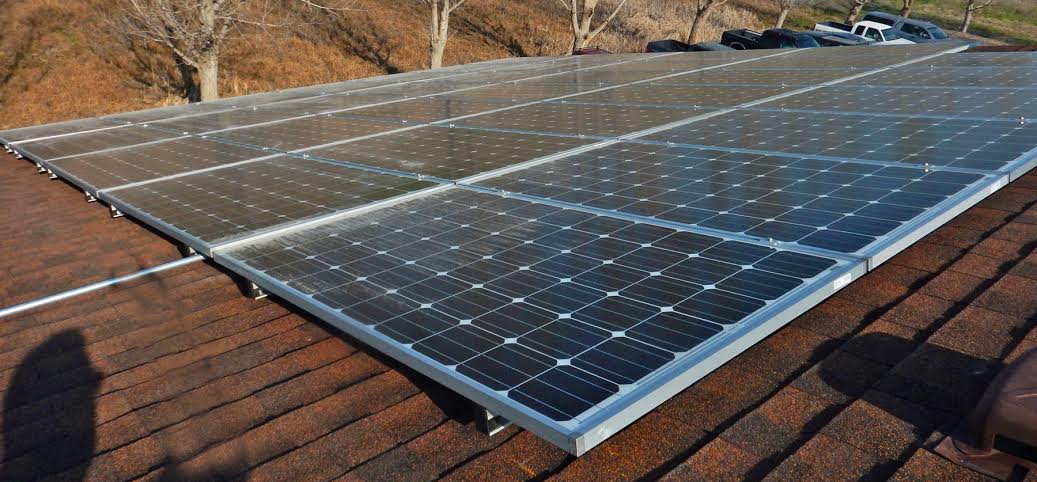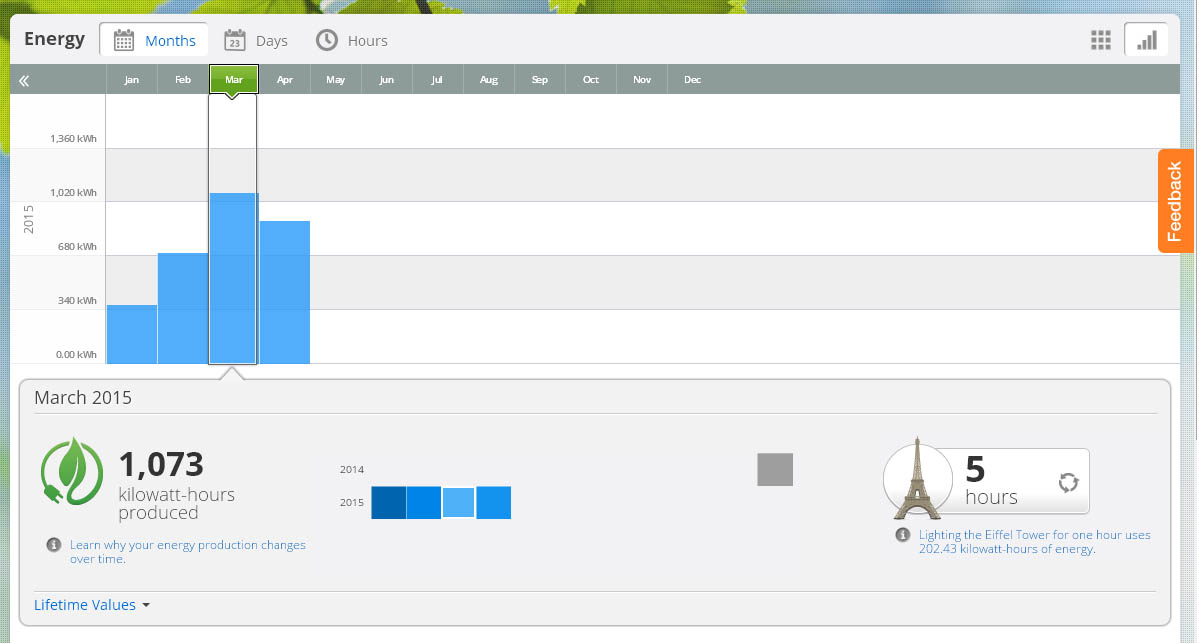All through the winter months, sunshine becomes quite scarce in northern Utah. The sun rides low in the sky and the days are short. In January the sun is often obscured by clouds and overcast conditions, which is why the rooftop solar panels recently installed at BIO-WEST’s corporate headquarters produced only 368 kilowatt-hours during that month. BIO-WEST Principal Wes Thompson, who managed the installation of the energy-producing panels, says he’s hoping for higher production soon.
“I’m thinking June should be pretty exciting,” said Thompson. The solar panels were installed in December 2014 as part of BIO-WEST’s continuing commitment to reduce its carbon footprint and rely as much as possible on renewable resources. The 34 solar panels with microconverters may not have put a dramatic dent in the company’s electric bill so far, but it adds up. According to Thompson, it won’t take long for the panels to pay for themselves. “We’ll recoup the total cost of installation in 7 years,” said Thompson. “Not long at all.” Part of BIO-WEST’s harvested energy is being funneled to an electric vehicle charging station, which came online in February 2015. The 100-amp station is a standard recreational vehicle unit capable of charging three vehicles simultaneously. BIO-WEST offers the electric vehicle station to its clients and employees, who can charge while they meet or work at the company’s headquarters. A steadily climbing bar graph shows that the BIO-WEST solar panels doubled their output from January to February, then jumped again in March to an all-time system high of 1,020 kilowatt-hours. Since kilowatt-hours are a somewhat confusing unit of measurement, the solar panel system includes innovative methods of displaying its electrical production. In addition to abstract graphs, the system reports how the electrical output might otherwise be used to power common devices such as light bulbs and cell phones. For example, the BIO-WEST solar system has produced 898 kilowatt-hours of electricity this month, which is enough energy to:
- run an ordinary refrigerator for 8 months,
- power a household light bulb for nearly 10 years,
- keep your iPhone charged for more than 30 years, or
- light up the entire Eiffel Tower for 5 hours.
Solar panel energy generation and electric vehicle charging are just pare of BIO-WEST’s sustainability practices. BIO-WEST has been relying on recycled goods and other resource-saving practices for decades and added the first hybrid vehicle to its fleet in 2001. As the cost of solar energy production drops, the installation of residential and business-based rooftop panels has become a growing trend worldwide. BIO-WEST is proud to be on the cutting edge of the local-solar trend. It’s unknown whether the City of Lights will ever call upon BIO-WEST to help with the Eiffel Tower’s energy needs, but it’s good to be ready―just in case.


